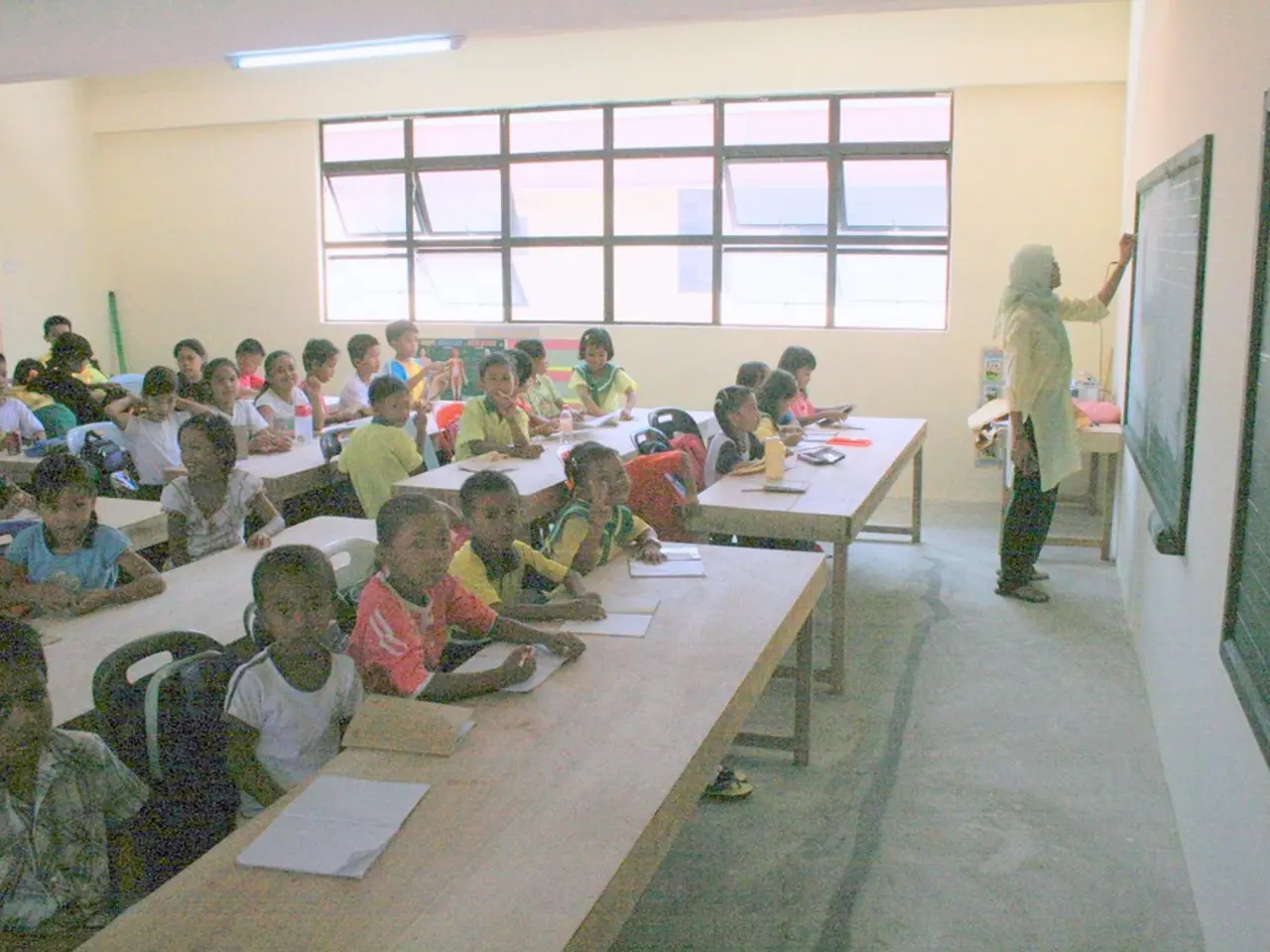Artificial Intelligence Tutors Soon Arrive - Discover Why This Spells Good News for Educators, Rather Than Pose a Hazard to Their Roles
In the rapidly evolving landscape of modern education, Artificial Intelligence (AI) tutors are making a significant impact by providing personalized learning experiences and automating various tasks. These AI-driven teaching aids are designed to enhance the efficiency and effectiveness of learning and teaching processes.
### Key Functions of AI Tutors
AI tutors are equipped with advanced algorithms that analyse each student's learning style, pace, and needs. They offer customized content and exercises tailored to individual students, helping them grasp concepts more effectively and fostering a deeper understanding of the subject matter[1][2].
One of the key advantages of AI tutors is their ability to assess student performance in real-time, providing immediate feedback on assignments and evaluations[2][3]. This allows students to correct mistakes promptly and strengthens their learning by identifying areas where additional support is needed.
AI can automate tasks such as generating quizzes and grading submissions, freeing teachers from administrative duties so they can focus more on teaching and student engagement[3]. Furthermore, AI tools assist teachers by generating lesson plans, improving teaching materials, and facilitating differentiated instruction, which is crucial in classrooms with diverse student needs[4].
### Benefits of AI Tutors
The adoption of AI tutors offers numerous benefits. By catering to individual needs and reducing the time spent on repetitive tasks, AI enhances learning[5]. The immediate feedback and customized learning paths provided by AI tutors can lead to better academic performance[2][3].
Moreover, AI tutors allow teachers to focus on teaching and student interaction rather than administrative tasks[4]. This shift in focus can lead to improved student outcomes and a more engaging learning environment.
It is important to note that AI tutors do not replace the need for human connection, inspiration, and real-world context in education. Instead, they act as an extra set of hands that help educators foster creativity, community, and critical thinking[6].
In conclusion, AI tutors are transforming the educational landscape by offering personalized, efficient, and effective learning experiences that complement traditional teaching methods. Whether it's through on-demand clarifications, interactive VR modules, or facilitating teamwork and collaboration, AI tutors are proving to be invaluable tools in modern education.
References: [1] EdTech Magazine. (2021). The Future of AI in Education. Retrieved from https://edtechmagazine.com/higher/article/2021/03/future-ai-education [2] The Guardian. (2020). Artificial Intelligence in Education: A Review of the Current State and Future Directions. Retrieved from https://www.theguardian.com/education/2020/oct/06/artificial-intelligence-in-education-a-review-of-the-current-state-and-future-directions [3] Forbes. (2019). How AI Will Transform Education. Retrieved from https://www.forbes.com/sites/forbestechcouncil/2019/04/01/how-ai-will-transform-education/?sh=62e6803876e2 [4] Education Week. (2020). How AI Can Help Teachers. Retrieved from https://www.edweek.org/leadership/how-ai-can-help-teachers/2020/03 [5] The Conversation. (2020). AI tutors could revolutionize education – but they're not a silver bullet. Retrieved from https://theconversation.com/ai-tutors-could-revolutionize-education-but-theyre-not-a-silver-bullet-145643 [6] EdSurge. (2020). The Role of AI in Education: A Guide for Educators. Retrieved from https://www.edsurge.com/news/2020-01-28-the-role-of-ai-in-education-a-guide-for-educators
Technology plays a crucial role in their design, as AI tutors are built with advanced algorithms to analyze students' learning styles, paces, and needs, thereby offering customized content and exercises for effective learning. Moreover, AI-driven education tools contribute to the field of education-and-self-development by automating tasks, providing immediate feedback, and facilitating differentiated instruction, which ultimately leads to improved academic performance and a more engaging learning environment.




